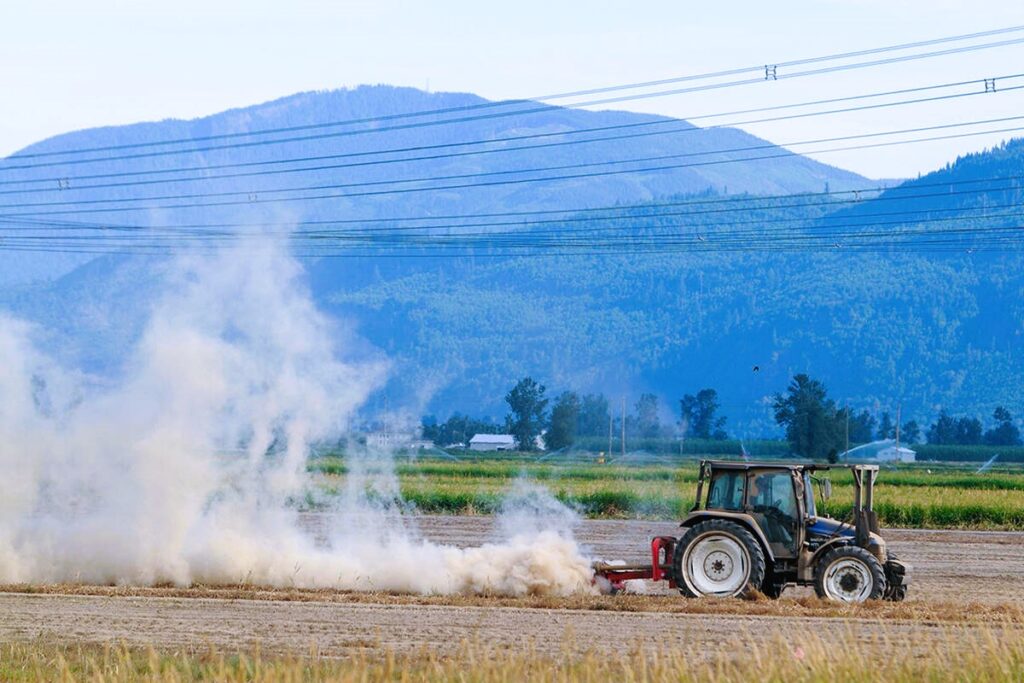Located in the fertile Fraser Valley of British Columbia, Abbotsford stands as a testament to the deep-rooted agricultural heritage of Canada. With its vast fields, thriving orchards, and charming private farmer’s houses, Abbotsford boasts a rich history of farming that has shaped the region’s identity and continues to leave a lasting impact on its residents and visitors.
Early Beginnings: Pioneers of Agriculture

The history of farming in Abbotsford can be traced back to the early 19th century when intrepid pioneers first settled in the fertile lands along the Fraser River. These early settlers, hailing from diverse cultural backgrounds, recognized the potential of the region’s soil and climate for agriculture. Their determination and ingenuity paved the way for the establishment of small farms and homesteads that became the foundation of Abbotsford’s farming legacy.
The Rise of the Dairy Industry
As Abbotsford’s agricultural prowess grew, so did its reputation as a dairy capital. The late 19th and early 20th centuries witnessed a boom in dairy farming, with numerous dairy farms dotting the landscape. Dairy production became a significant contributor to the local economy, supplying the region with fresh milk, butter, and cheese. The Canadian Dairy Commission, a federal agency responsible for overseeing the supply management system in Canada’s dairy industry, played a crucial role in ensuring the stability and sustainability of dairy farms in Abbotsford and across the country.
Fruitful Orchards: Abbotsford’s Bounty
In addition to dairy farming, the fertile lands of Abbotsford proved to be ideal for cultivating a variety of fruits and vegetables. The region’s moderate climate, fertile soil, and abundant water resources fostered the growth of fruit orchards that flourished with apples, blueberries, strawberries, raspberries, and more. These orchards became synonymous with Abbotsford’s identity, earning it the nickname “City in the Country.” The Canadian Food Inspection Agency (CFIA), a federal agency responsible for food safety and quality, plays a vital role in ensuring the health and integrity of Abbotsford’s produce.
Modern Innovations: Embracing Sustainable Practices
As the world entered the 21st century, Abbotsford’s farmers embraced modern innovations and sustainable practices to meet the challenges of a changing agricultural landscape. Implementing advanced technologies such as precision farming, drone technology, and smart irrigation systems, farmers in Abbotsford optimized their productivity while minimizing their environmental impact. Organizations such as the Canadian Agricultural Partnership (CAP), a federal-provincial-territorial initiative, supported farmers in Abbotsford by investing in research and projects aimed at promoting innovation and sustainable practices in agriculture.
Farmers Markets and Agrotourism: Celebrating Local Agriculture
Abbotsford’s rich farming heritage is not just confined to the fields; it is celebrated in farmers markets and agrotourism experiences that attract visitors from near and far. Farmers markets like the Abbotsford Farm and Country Market provide a direct link between consumers and local farmers, offering fresh, locally sourced produce and artisanal products. Agrotourism has also become a thriving industry, where visitors can experience life on the farm, engage in hands-on activities, and immerse themselves in the rural charm of Abbotsford’s private farmer’s houses.
Preserving Heritage Seeds and Biodiversity

Efforts to preserve Abbotsford’s farming heritage extend to safeguarding heirloom seeds and promoting biodiversity. Organizations like Seeds of Diversity Canada, a non-profit dedicated to conserving and promoting Canada’s agricultural and horticultural biodiversity, work closely with farmers to preserve rare and unique seed varieties that are part of Abbotsford’s history. These initiatives contribute to the resilience of Abbotsford’s agriculture and its ability to adapt to changing climates and farming practices.
Agricultural Education and Research
Abbotsford’s commitment to farming extends beyond the fields, with a focus on agricultural education and research. The University of the Fraser Valley (UFV) offers programs in agriculture and horticulture, equipping the next generation of farmers with the knowledge and skills needed to sustain and advance the industry. Moreover, the Agriculture and Agri-Food Canada (AAFC), a federal department, conducts research and innovation to support the competitiveness and sustainability of Canada’s agricultural sector, including projects that benefit farmers in Abbotsford.
Conclusion
Abbotsford’s agricultural journey is a tapestry of hard work, innovation, and a deep connection to the land. From the pioneering settlers to the modern-day farmers, their dedication has shaped Abbotsford into the vibrant agricultural hub it is today. The harmonious blend of traditional practices and modern innovations underscores the resilience and adaptability of Abbotsford’s agriculture, reflecting a commitment to sustainability and a bountiful future for generations to come.
